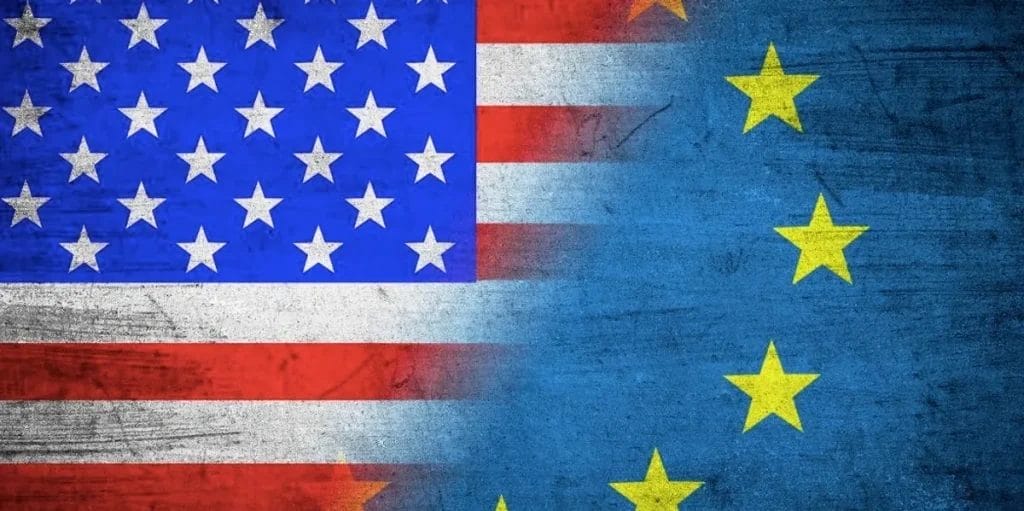
Last week, three speeches given by US Vice-President JD Vance and Secretary of Defense Pete Hegseth, along with a phone call made by US President Trump with Russian President Vladimir Putin, which was followed by a declaration by US Special Envoy to Ukraine Keith Kellog, have reset the US-EU relationship after decades of cooperation, taking it to one of the lowest points in recent history.
On 11th February, JD Vance spoke at the global summit on AI organised by French President Macron, who had just announced a EUR 109bn investment in artificial intelligence, matching the same GDP proportion as the US investment in the Stargate Project. At the end of the summit, the US refused to sign the joint declaration on “inclusive AI”, which was signed by all other participants, including the EU and China.
The main argument given as to why it did not sign the declaration was based on the usual “America First” approach, which foresees a technological superiority (both in semiconductors and software) as well as a regulatory superiority by the US. The UK, in an act of clear confusion and likely self-harm, decided to follow its bigger but younger American “cousin”, and also refused to sign the joint declaration.
On February 12th, Pete Hegseth also delivered an abrasive speech to the Ukraine Defense Contact Group. During that speech, he wiped out three years of diplomatic and strategic advancements made by the US and EU over Ukraine, making the following points: (a) it is not realistic to think that Ukraine will ever return to its 2014 borders, before Russia’s illegal annexation of Ukrainian territory; (b) it is also not realistic to think about Ukraine’s accession to NATO; (c) once the new borders will be defined (which would likely not be far from the current de-facto borders, after Russia’s advancements into Ukraine’s territory), it will be up to European, rather than US or NATO troops, to patrol them; (d) those troops will NOT be covered by NATO’s Article 5 provisions; ( e) European countries will have to spend 5%, not 2%, of their GDP on defense. This is akin to punching the Europeans in the face, while at the same time telling them “you cannot count on the US for your security anymore.”
Also on February 12th, Trump and Putin held a phone call, at the end of which Trump declared that negotiations on the Russia-Ukraine war will begin “immediately,” reiterating the points made, the same day, by his Secretary of Defense Hegseth, which de-fact conceded to Russian President Putin anything he could possibly ask for from a negotiation. It does not look like a wise strategy from the master of the Art of the Deal to concede to his counterparts all the negotiation points before the discussion has even started. On 15 February, Kellog reinforced the message by saying that the Europeans will not be invited to the table of the negotiations regarding the future of Ukraine.
In between, on February 14th, JD Vance, speaking at the Munich Security Conference (MSC), reiterated all these previous messages, and added that Europe has betrayed its own ideals and that freedom of expression is in danger in Europe.
All these events have plunged US-European relations to their lowest points since WWII, with the Americans saying to the Europeans that effectively they should not rely on the US anymore for their security, and that, if Putin made further attempts to invade European territories, the US would not intervene.
The European response has been timid so far: Macron has announced an informal EU meeting on Ukraine, which still needs to be confirmed. Former ECB President Draghi wrote an article in the FT saying that it is Europe that has imposed the strongest barriers to further integration and success, rather than foreigners, by effectively putting “tariffs on itself.” The only stronger response came, once again, by Italian President Mattarella, who said that Russia’s invasion of Ukraine followed the same spirit of Germany’s Third Reich, when it attempted to conquer Europe.
While it is unclear how this dispute will eventually evolve, it is clear that the only winner of this is China, which sees its strategic rival the West falling into abrasive and destructive infighting.